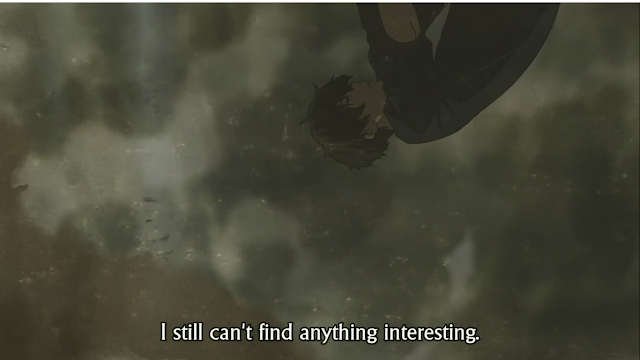Dos: Chapter 3
Brandon and Tano were bastards of the highest caliber, each within their own right. Their origins, and therefore their adult lives, and therefore their destinations and principles, were always going to be dualistic.
Born of a spurt of friendliness between his mother (who was Irish) and his father (who was Czech), Brandon decided to join the military out of sheer boredom and burning but slow desire to write his greatest novel. “If anything,” he explained to her once, long before they were fucking, “my military training gave me tactical awareness in writing.”
Tano, on the other hand, was from the Philippines, a country she had come to hate for how her countrymen voted and went with their daily lives. Being born out of a Pangasinense mother (who came from peace-loving peoples) and a Waray father (warriors and gangsters of the country itself), she herself lived somewhere far away from either province, but still within the country. Even her employments are decidedly contradictory: on the one hand she writes pseudo-academic treatises in her blogs, and on the other, she edits words already written by others.
She was talking to Lord yet again on this day (while waiting for Brandon to wake up yet again – theirs was a seven-hour time differential), and she explained to him how she is split down to her very core.
“I mean,” she said, drinking her second cup of coffee for the day, “I’m not like you. Your parents are both from NZ, they are neurotypical, they are decent, and therefore have decent offspring.”
Their topic of the day turned to how he was an IT professional and how he was naturally good at maths. She was always wary of the subject, although she got decent grades in her five math courses throughout college. The purity of mathematics, she concluded, is incomparable to any other: it alone can boast of an objectivity that is almost not scientific, if by "science" we think of empiricality. Concepts and axioms in (pure) mathematics have no need of empirical epistemology, they are abstract, or, more correctly, math is the realm of the abstract, in the most abstract sense of the word, even.
Only half-listening to Lord, and apologizing for it (as she did countless times with him), she wrote in her blog:
That is perhaps why we hate mathematics, for the same reason that we love it. (For what are those two feelings, if not the same?) Because in it we see infinity as it is, and hope that this infinity that we see in math is also identical in kind to the infinity that a lifetime with a person makes us experience. It is not. That is why we say "I'm so happy I could die," i.e., as though somehow dying and falling out of ontology creates infinity. And yet we know that it does not. That is why we really do not wish to die in moments of happiness: we just wish there were more, and more, and more, ad infinitum.
Which we know we cannot have. Life does not work that way. Life is utterly momentary. (And because it is, we complain about it being fleeting, but we also complain about the brevity of moments. And that is the way it can only be.) Life is utterly momentary.
And that is why we also say that math is cold, like snow, like the logic of the Devil, like objectivity. Because at the bottom of the human heart is a longing for warmth.
And warmth, too, is momentary. It cannot last. Entropy is king. But that doesn't matter: we have math. Math reminds us of infinity, which is the most dangerous hope of all.
“Anyway, dear, have to go. Have a file.” They said goodbye shortly after, and she started working on an interview with a PTSD’d soldier going to Veteran’s Court for a DUI misdemeanor. She had multiple clients that held the same interviews, and she was glad that the market was flooded with them.
The interviewee soldier was addicted to opioids, having been given them as a pain reliever for injuries sustained in two campaigns in Iraq lasting for three years. He never saw a patch of grass in that time, and when he was back Stateside, seeing grass on his drive from the airport, stopped his car and worshipped the ground, saying, “Grass,” as only a soldier could.
She had to stop the file then, when he said that. She could see it: the soldier, reliving the memory, also relived and enhanced the pronouncement. It was the voice of cool water, a voice ready to lure Narcissus out of his enchantment, a voice that can give a woman an orgasm just by saying her name in the timbre that he said it then.
She hated the VA. They treat their veterans like dogs. After stints of their proxy wars in the Middle East dictated by their general, these soldiers were given a thirty-minute presentation comprised of one PowerPoint slide telling them how to reintegrate into society. Cunts, she thought of the generals.
Finishing the file, she turned to the market once again. All the other ones of the same topic were taken, to her regret and hatred of the system of this particular transcription company. She chose another file, then, this time an interview of parents mourning the loss of their son in a gang jumping perpetrated by the son of the Governor of California.
The son was found guilty, and in the trial, the father remembered, “I felt a different wave of emotion strike me then, looking at the fathers of the members of this gang. They have sons, too, and their sons are going to prison.” His voice cracked. “I feel nothing but empathy for them, for it might have been their sons dead. I’m not sure prison is a better fate.”
The mother, though, to Tano's surprise and subsequent tears, said simply, “Let them rot.”



Comments
Post a Comment